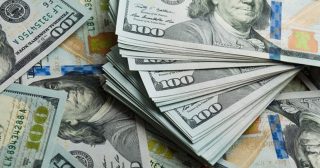As the COVID-19 pandemic continues to gain considerable grounds in sub-Saharan Africa, Central Banks of Kenya and Nigeria have come up with measures to cushion the impact of the pandemic on their economy.
While the Nairobi regulator cut its benchmark lending rate by 100 basis points (bps) to 7.25 percent to protect the economy from the new coronavirus, Nigeria’s apex bank has introduced a new dollar remittance policy that stops local and international oil corporations from selling dollars to the state-run Nigerian National Petroleum Corporation.
On Monday, 23 March 2020, the Central Bank of Kenya announced a revised monetary policy that puts the lending benchmark at 7.25 percent and reduces the cash reserve ratio for commercial banks from 5.25 percent to 4.25 percent. The latter is meant to release an extra 35.2 billion shillings ($330.83 million) to financial institutions for lending to customers who have been affected by the pandemic, thereby helping to buffer the eastern African country and drive economic activities.
Also, the CBN’s dollar remittance policy is focused on boosting local dollar collection, improving foreign exchange supply and stabilizing the local currency amid the COVID-19 pandemic. The apex bank seeks to improve dollar supply to its coffers while it reduces the greenback spending to further boost the naira. This is coming after the apex bank, announced on Friday, that it has devalued the naira to N380 per dollar.
This new measure was disclosed by the CBN Governor, Godwin Emefiele, over the course of the weekend in an emergency meeting with bank executives in Lagos. “We are committed to improving forex supply to the CBN, by directing all oil companies -international, and domestic, whether you are in the service industry, or producing, upstream, midstream, downstream, or related companies, to sell their foreign exchange to the CBN and no longer to NNPC, for purposes of funding even import of petroleum products, and also new policy on price modulation,” Emefiele said.
The oil sector is the key foreign earner for Nigeria as the giant of Africa earns over 90 percent of its revenue from oil and also funding over 60 percent of its annual budget.
Before the pandemic began ravaging the global economy, a swift fall in the global market price of oil caused by the price-war between Russia and OPEC caused an increase in Dollar price. This gradually began to cause a strain in most economies, causing the real sector to experience strains in its output and demands.
Since the outbreak of the COVID-19 pandemic, there has been a slowdown in economic activity globally due to critical measures taken by most governments to curb the spread of the disease.
While the move will simply be releasing more funds from its reserve to aid financial institutions to issue more loans to drive economic activities in Kenya, the remittance policy by the Nigerian Central Bank would be helping the Naira to stabilize even as the pandemic mounts pressure on the global economy.








